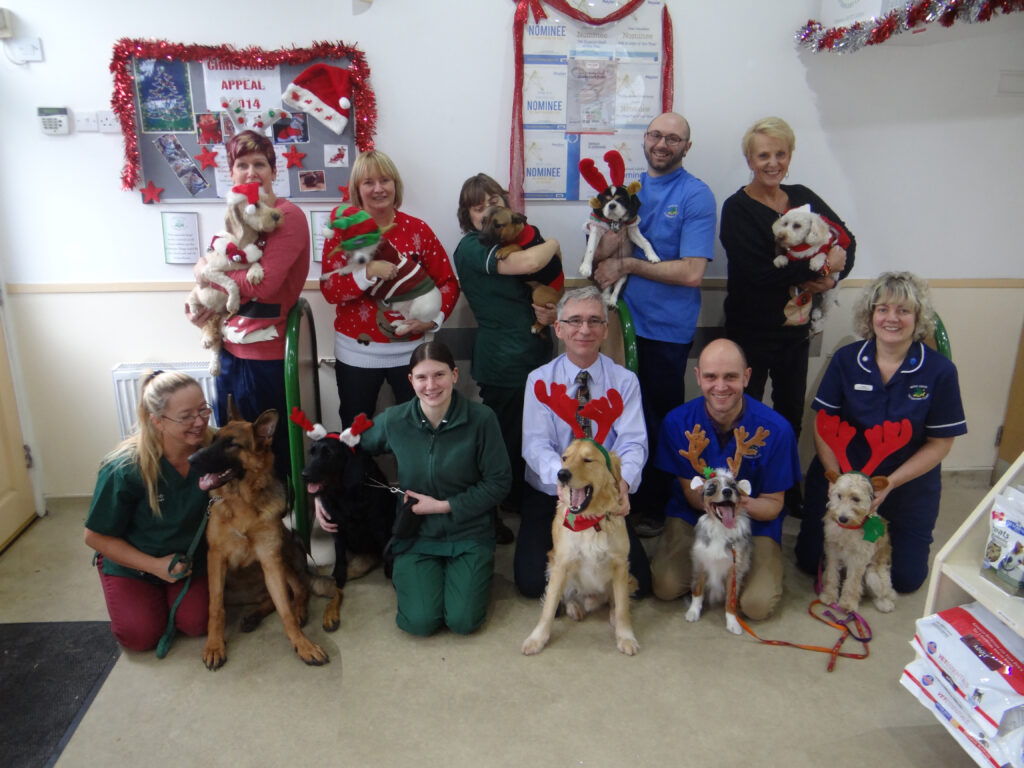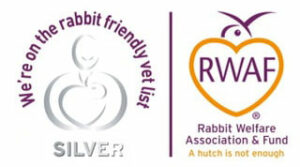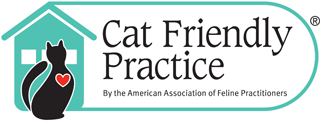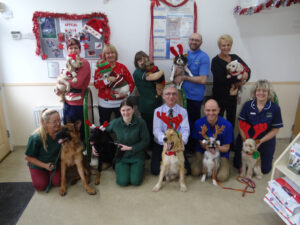
Be Careful this Christmas
Watch out for potential hazards to your pets this Christmas, as findings released by the British Veterinary Association (BVA) reveal that in the North West 80% of vets saw at least one case of toxic ingestion in pets during the last festive period.
Across the UK, chocolate poisoning in dogs remains the most common cause of toxic ingestion at Christmas, with 74% of vets seeing at least one case. Raisin or sultana poisoning is also prevalent (54%), with vets reporting a significant increase in cases over the last two years.
Several vets in BVA’s ‘Voice of the Veterinary Profession’ survey said that, despite owners’ best intentions, their pets had been poisoned after gifts or festive treats containing chocolate or raisins were placed under the Christmas tree, with the owner unaware of the potential peril for their pet lurking beneath the wrapping. Many cats also suffered toxic ingestion last Christmas, with a quarter of vets treating cats for antifreeze poisoning.
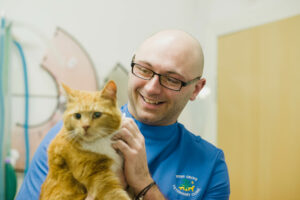
BVA President John Fishwick said:
‘Christmas is typically a fun and chaotic time for families, but the presents, treats and decorations can often prove dangerous for our pets if we are not careful. Many pet owners are aware of the risks of chocolate or other festive foods being toxic for their pets but, as our survey shows, it’s easy to be caught out by a kind gift left under the tree which curious animals can find hard to resist. Our advice is for present-givers to tell owners if there is anything edible in gifts and to keep such presents safely out of reach of your pet. If you suspect your pet may have eaten something it shouldn’t, please contact your local vet immediately.’
Keeping your pets safe
To keep Christmas merry for the whole household, Withy Grove recommends you ensure your home is safe for four-legged friends by following these five simple tips:
- Protect your pet from poisons – a number of festive treats and traditions are toxic to cats and dogs. They include;
- Chocolate and liquorice (common Christmas gifts)
- Raisins and sultanas (used in Christmas cake recipes)
- Certain nuts (especially peanuts and Macadamia nuts)
- Xylitol-sweetened foods
- Onions, avocados and grapes
- Alcohol
- Plants including poinsettia, holly, mistletoe, lilies (and daffodils)
- Cleaning and DIY products such as white spirit and lubricating oils
- Car anti-freeze
- Human medicines
Substances with low toxicity that could cause drooling, vomiting or diarrhoea include:
- Blu-tack or other similar adhesives (used to put up decorations)
- Charcoal and coal
- Cut-flower and houseplant food
- Expanded polystyrene foam (used for large present packing)
- Matches
- Wax candles and crayons
- Silica gel (found in packaging)
- Keep decorations out of reach – ribbons, wrapping paper, baubles, tinsel and tree lights can all prove irresistible to cats and dogs but can be very dangerous if broken, chewed or swallowed. Batteries for Christmas gifts also need to be kept safe as, if ingested, they may cause severe chemical burns to the mouth, throat and stomach.
- Forget festive food for pets, we all enjoy a richer diet over Christmas, but fatty foods and Christmas dinners shouldn’t be shared. They can trigger, sickness and diarrhoea or other conditions from gastroenteritis to pancreatitis, so try to stick to your pet’s regular diet and routine. Bones including turkey bones should not be given to pets as they can splinter and puncture the digestive tract (see my next blog for an example!). Make sure any bones are disposed of in a bin that your dog won’t be able to access.
- Give toys not treats, we all want our pets to share the fun and many of us include a gift for our pet on the shopping list. But too many treats can lead to fat pets which can have serious consequences for their health, so consider opting for a new toy, or a long walk (usually enjoyed more by dogs than cats!) if you want to indulge your pet this Christmas.
- Know where to go, even with all the care in the world, animal accidents and emergencies can still happen. Make sure you’re prepared, all vets must have a 24 hour emergency cover, phone our normal number , 01772 330103, if you need assistance and you will be put through to our on call service. The only two days we don’t have a surgery at Withy Grove are Christmas Day and Boxing Day. If you are away from home, use the Royal College of Veterinary Surgeons ‘ Find a Vet’ facility at www.findavet.org.uk
For more information on pets and poisons download the free Animal Welfare Foundation ‘Pets and Poisons’ leaflet at www.bva-awf.org.uk/pet-care-advice/pets-and-poisons


